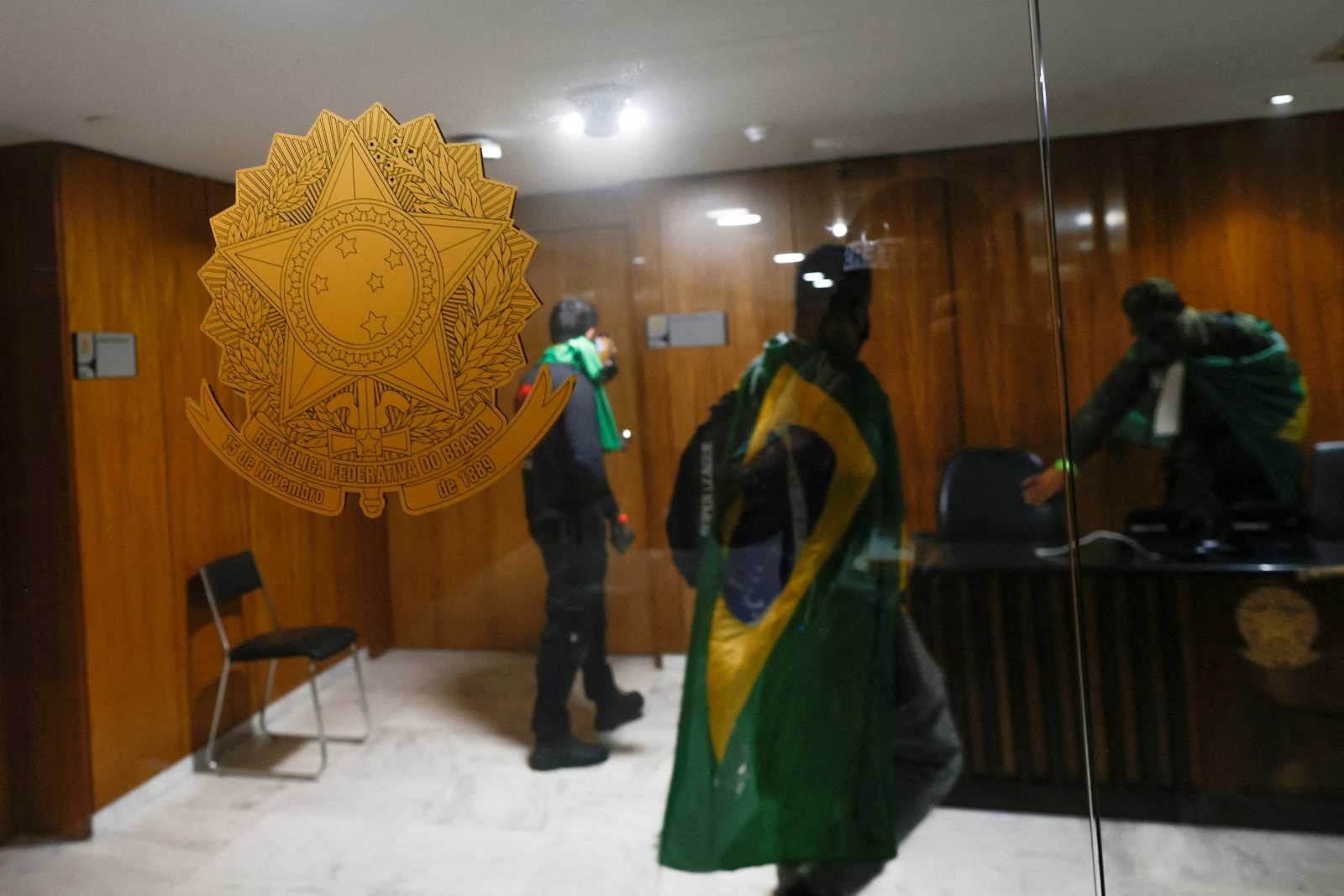Ecosystems
Hope for Brazil’s forests

The new government of President Luiz Inácio Lula da Silva began by repealing various environmental laws passed by the former government under Jair Bolsonaro. The responsible minister, Marina Silva, has already announced penalties for illegal deforestation as well as new forms of monitoring. For example, satellite images should help identify farmers who are logging illegally. Subsequently, they should automatically be denied access to bank loans.
Silva has said that monitoring deforestation is an “act of revenge” on Bolsonaro’s government. During her inauguration speech in January, she reported that uncontrolled logging had taken place in recent years and that indigenous areas had been exposed to organised crime. As recently as February, more forest was cleared in the Brazilian Legal Amazon (BLA) than in any other February since records began – restoring order obviously takes more time than destroying it.
Her plans address the climate emergency too, which she calls “the greatest global challenge that humanity is currently confronted with”. If it is not addressed, she says, there will be “unacceptable” costs: a sharp reduction in GDP, national production-rate losses and ultimately misery and death caused by ongoing environmental disasters.
In the context of World Environment Day on 5 June, the government announced a series of measures that give hints about the course of action that will be taken. For example, the Ministries of Indigenous Peoples and Justice and Public Security want to work together to define indigenous territories. The latter also launched a call for tenders worth 3 million reals (about € 600,000) for measures to combat the social discrimination of indigenous peoples.
Within the same setting, Silva’s Ministry of Environment and Climate Change introduced new goals as part of the fifth phase of its Action Plan for the Prevention and Control of Deforestation in the Legal Amazon (PPCDAm). The plan, developed in 2004 under Silva’s direction with input from 12 other ministries and several federal agencies, aims to end deforestation in the region by 2030. It had already significantly contributed to an 83 % decline in logging from 2004 to 2012 before it was dropped by Bolsonaro’s government.
Strategic objectives
The core plan of the PPCDAm comprises 12 strategic objectives, including:
- accountability for environmental crimes and administrative offences concerning deforestation and forest degradation,
- improved opportunities to monitor deforestation, fires and the dismantling of production chains,
- progress in environmental regulation with improvements of the National Rural Environmental Registry,
- securing the allocation and protection of unused public land,
- and the creation, improvement and implementation of normative and economic control instruments.
Satellite technology will serve surveillance purposes. The new phase of the plan now contains over 130 targets to be achieved by 2027. They include the inspection of 30 % of the illegally deforested region, which has been identified by the Prodes system of the National Institute for Space Research (INPE), the official satellite technology for monitoring deforestation. Currently, only around six percent of the cleared areas are monitored.
Half of these illegally deforested areas in federally protected units should be closed immediately. The plan also aims to increase the number of environmental offence complaints in the first instance by ten percent as soon as this year.
Next year, the goal is to develop traceability systems for agricultural and mineral products from the Amazon region in order to stem illegal extraction. By 2027, the government wants to cancel all illegal entries in the Rural Environmental Registry that overlap with federal protected land. The measures are in line with the demands of the European Union, with which Brazil is currently negotiating the final details of an economic agreement. The EU is pressuring Brazil to take stronger action against deforestation.
A major challenge is to align business plans and infrastructure projects with deforestation reduction targets. By 2027, companies and infrastructure projects should also make greater efforts to reduce logging and greenhouse-gas emissions, for example, by using their land differently.
To this end, a programme has been set up that concentrates on four main areas: monitoring, environmental and territorial control, the promotion of sustainable production and the creation of normative and economic instruments to reduce logging and implement the measures.
As part of the legislative package, President Lula also approved a draft that would extend the time limit for including rural property in the environmental regulation programme and vetoed measures that would weaken the Atlantic rainforest on Brazil’s east coast.
President Lula and Minister Silva furthermore signalled the return of the so-called Bolsa Verde programme, which is compensation the government pays to families who live in traditional communities, find themselves in a socially weak position and at the same time conserve natural resources. Speaking with journalists, the minister explained that around 80 % of Brazil’s protected forests are located in indigenous territories.
In addition, there are initiatives like the creation of Serra do Teixeira, a 61,000-hectare national park in the state of Paraíba; an 1800-hectare expansion of the Chocoaré-Mato Grosso conservation area in mid-western Brazil; and the revision of the technical committee aimed at promoting the transition of the production sector to a low-carbon economy.
Environmental action might generate 215,000 jobs by 2030
On social media, Minister Silva quoted a study from the Instituto Escolhas that suggested that expanding forest concessions and aiming to restore 12 million hectares of forest by 2030 could create 215,000 jobs.
Ivan Henrique de Mattos e Silva, professor of political science at the Federal University of Amapá, sees the new measures as an urgently needed acceleration of Brazilian environmental protection. Its mechanisms had been ineffective under the Bolsanaro government. He believes that the situation of indigenous peoples has also improved.
Nevertheless, de Mattos e Silva feels that Brazil still has a long way to go to become a global benchmark again in the fight against the climate crisis and deforestation. He bases his argument on two factors: first, the difficulty of rebalancing the budget of the control and monitoring organs as quickly as the economy would require – a difficulty that could get worse with the passage of the new tax framework – and the entrenchment of Bolsonarism.
The politicial scientist says: “Bolsonaro’s legacy is still alive and deeply rooted, both socially and institutionally”. In his eyes, the environmental agenda is at the core of a fierce conflict between opposing interests, so the new government is facing enormous challenges. “It remains to be seen whether President Lula and Minister Silva will be able to overcome them”, de Mattos e Silva concludes.
A start has been made, however: according to statements by Minister Silva, logging in the Amazon region declined by 31 % from January to May. What’s more, she claims that the structured resumption of inspections contributed to a 179 % increase in reports of violations, a 107 % increase in seizures and a 203 % increase in the destruction of equipment that is used in environmental crimes.
Thuany Rodrigues is a Brazilian journalist.
thuanyrodriigues@gmail.com









